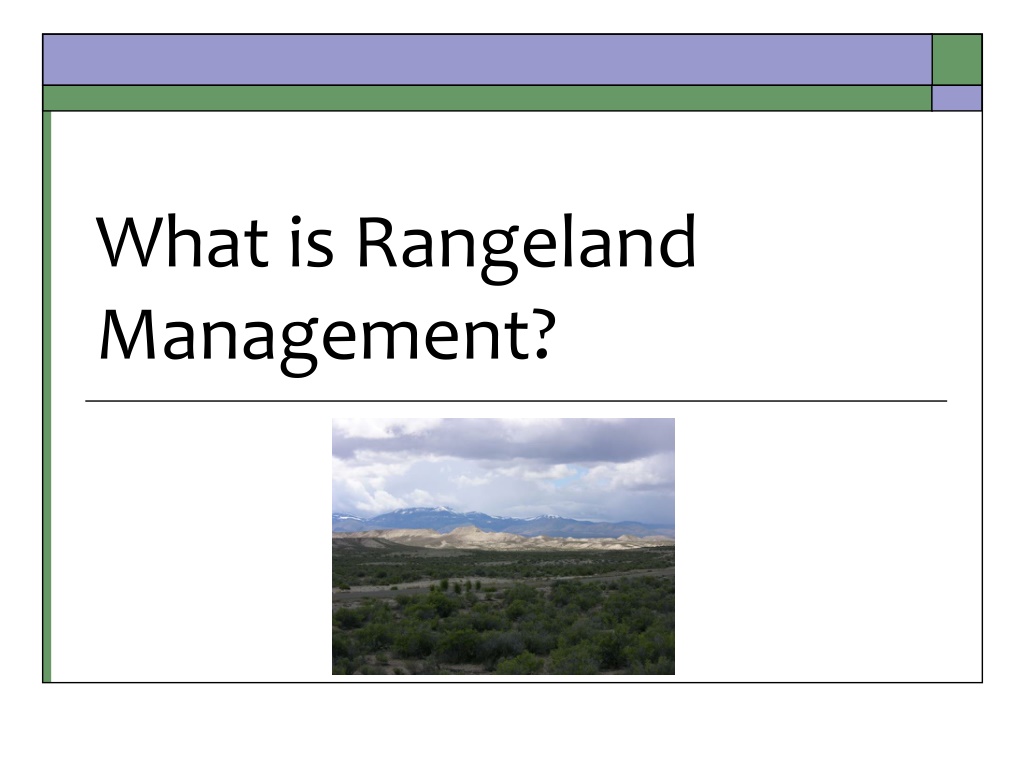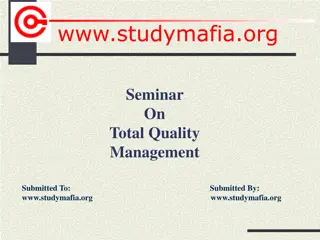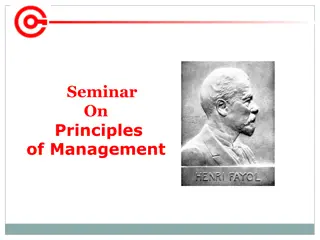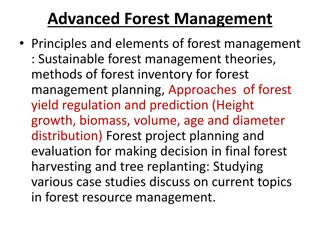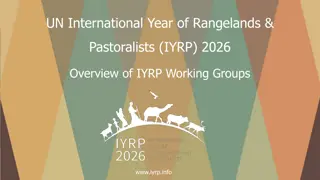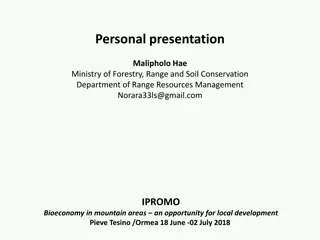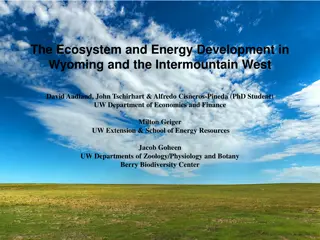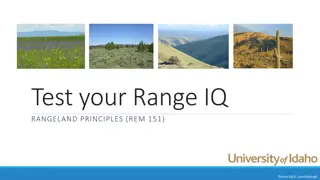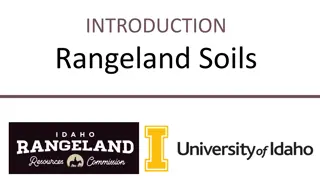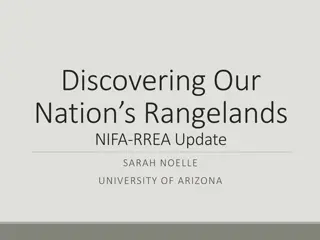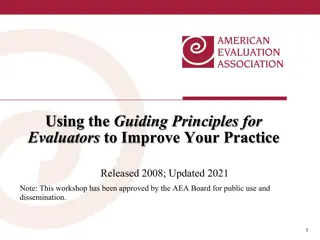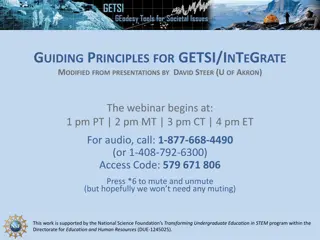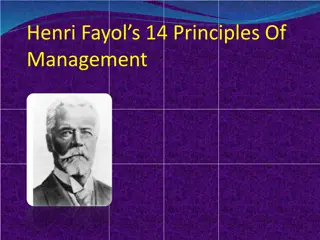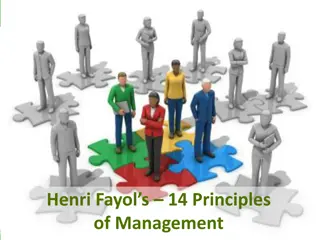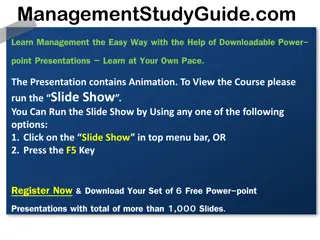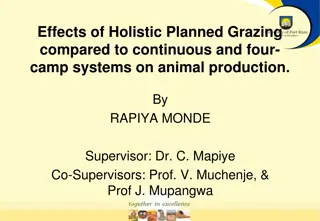Understanding Rangeland Management Principles
Explore the concept of rangeland management, focusing on the use and stewardship of resources to meet human goals. Delve into different perspectives, such as preservationists, conservationists, and utilitarianists, shaping decisions in current and future management practices. Discover the importance of integrating scientific knowledge to make informed decisions and the roles of education in promoting wise land use discussions.
Download Presentation

Please find below an Image/Link to download the presentation.
The content on the website is provided AS IS for your information and personal use only. It may not be sold, licensed, or shared on other websites without obtaining consent from the author. Download presentation by click this link. If you encounter any issues during the download, it is possible that the publisher has removed the file from their server.
E N D
Presentation Transcript
What is Rangeland Management?
Rangeland Management is: The use and stewardship of rangeland resources to meet goals and desires of humans. A Planning Process CURRENT FUTURE Planning examines different alternatives to see which is the best future world.
What is Best It depends on your point of view. Preservationists Conservationists Utilitarianisms Pragmatists Etc. etc.
What is Best Preservationists Emphasize protecting large areas of land from mining, timber, grazing & development so they can be enjoyed by present and future generations. Founders of the preservation movement were John Muir and Aldo Leopold. Conservationists View land as a resource to be used now to enhance economic growth. But, protected from degradation by efficient management, based on scientific principles, for sustained yield and multiple use. Early conservationists were T.R. Roosevelt, Gifford Pinchot, and John Wesley Powell. Utilitarianists View land as a substrate for saleable products. Management is based on land manipulation and exogenous inputs (e.g., fertilizer or herbicides) are usually required to keep production at an optimum level.
Rangeland Management Source of Decision? ? ? ? ? CURRENT FUTURE
Rangeland Management Source of Decision? guesses tradition information hunches CURRENT FUTURE
Why do we need science? Mangers must integrate scientific knowledge with ideas, hunches, traditions, etc., to make wise decisions. To understand the physical, biological, and social processes that affect rangelands. To discover principles on which to base the wise use of rangelands. Others?
Rangeland Management What kinds of decisions do we make? CURRENT FUTURE Political laws and policies Economic buy, sell Direct actions
What is the role of Education? Convey what is known to society Stop non-objective views Lead to wise land use discussion and support for actions.
Rangeland Management is: The use and stewardship of rangeland resources to meet goals and desires of humans. What do people want from rangelands?
Why are rangelands important? Forage Wildlife Habitat Livestock Production Recreation Native Plants Water Minerals Energy Open Space
Rangeland Management is: The use and stewardship of rangeland resources to meet goals and desires of humans. What tools do we have for Range Management?
Ecological Services & Resources forage for livestock wildlife habitat watershed management biodiversity conservation open space carbon sequestration Forces & Impacts Rangelands Grasslands, Shrublands, Woodlands
Ecological Services & Resources forage for livestock wildlife habitat watershed management biodiversity conservation open space carbon sequestration Forces & Impacts Rangelands Grasslands, Shrublands, Woodlands Tools for Stewardship
Tools of Range Management Fire Livestock grazing Integrated weed management Human impacts Recreation Development Restoration & rehabilitation
Rangeland Management Basic Concepts Rangelands are renewable resources; they can produce on a sustained yield basis if properly managed. Rangeland must be managed to maintain soil and water quality and health and basic biogeochemical cycles. Rangelands are managed by extensive and ecological principles, not intensive and agronomic principles.
Rangeland Management Basic Concepts Rangelands produce a variety of products (e.g., forage, recreation, water) therefore principles of multiple use are important in range management. Many important public concerns on rangeland happen acrossmultiple ownerships (i.e., fire, water quality, weeds, open space). You can t please all the people all the time. What one person wants my not meet the desires of plans of another.
Principles of Rangeland Management Rangelands change through succession and disturbance. All we can really do as managers is apply, control, or respond to disturbance based on our knowledge of succession. The only constant on rangeland is CHANGE. Conditions change from place to place (spatially) and time to time (temporally). We need to understand and accept change. If you do nothing the land will probably not return to some pre-human paradise.
